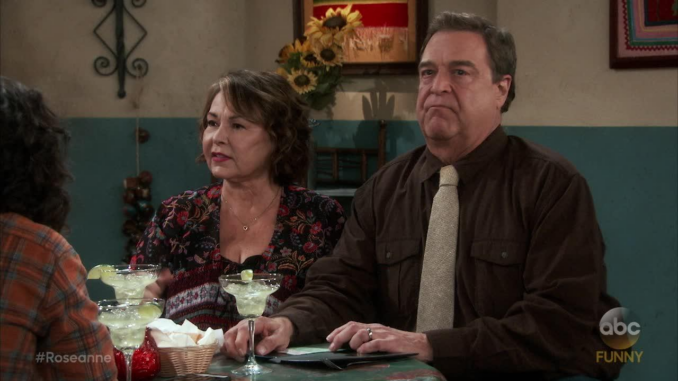
Discover how Roseanne revolutionized television and continues to capture hearts, decades later.
When Roseanne first hit the airwaves in 1988, it was a breath of fresh air in the world of sitcoms. At a time when most family shows were filled with idealized depictions of nuclear households, Roseanne threw realism into the spotlight. The show, starring Roseanne Barr as the headstrong, no-nonsense matriarch of the Conner family, quickly became a favorite among viewers who were ready for something different: a portrayal of a working-class family that was neither perfect nor idealized, but real.
Breaking Stereotypes: A Real Family, With Real Problems
One of the key reasons why Roseanne resonated with audiences is that it didn’t shy away from depicting the struggles of everyday life. While other sitcoms of the time relied on slapstick humor and exaggerated scenarios, Roseanne brought issues like financial struggles, teenage rebellion, and marital conflicts to the forefront. This shift was incredibly significant in the late ’80s, where most TV families were portrayed as white-picket-fence-perfect.
The Conners weren’t rich, they didn’t have the perfect house, and their lives were full of challenges. The show tackled everything from issues like body image and substance abuse to the pressures of raising children in an unpredictable world. Roseanne’s character herself was far from a polished, stereotypical TV mom—she was sarcastic, flawed, and unapologetically herself. This raw authenticity made Roseanne groundbreaking in its approach to family sitcoms.
The Power of Humor in Difficult Topics
What set Roseanne apart from other family-oriented shows was its ability to combine humor with deep, sometimes uncomfortable issues. In the show, laughter didn’t just come from misunderstandings or wacky situations; it often emerged from the way the characters dealt with real problems. The way Roseanne and her husband, Dan, navigated their financial troubles, or how they supported their kids through troubled times, made the audience laugh while also provoking thought.
In a way, Roseanne was like a mirror reflecting the reality of many American families, and this relatability is what made it such a hit. It was an honest portrayal of middle-class America, and because it didn’t shy away from hard truths, it felt like the show was talking directly to its viewers.
The Cast and Their Chemistry
One of the greatest strengths of Roseanne was its remarkable ensemble cast. Roseanne Barr’s portrayal of Roseanne Conner was nothing short of iconic. Her ability to deliver biting humor while balancing moments of vulnerability made her a standout character. John Goodman, who played Roseanne’s lovable yet equally flawed husband Dan, had an incredible chemistry with Barr that brought a sense of warmth to the series, despite the sometimes tense situations the characters found themselves in.
The supporting cast was equally strong, with Sara Gilbert as Darlene, Lecy Goranson as Becky, and Michael Fishman as DJ. These actors, along with the addition of actors like Laurie Metcalf as Roseanne’s sister Jackie, created a dynamic that viewers couldn’t get enough of. The relationships within the Conner family felt lived-in and real, and this made the show even more relatable and special.
Cultural Impact and the Enduring Legacy of Roseanne
The cultural impact of Roseanne cannot be overstated. At a time when the portrayal of working-class families on television was rare, the show’s willingness to explore social issues in an honest and humorous way was groundbreaking. Roseanne touched on topics such as economic instability, gender roles, and even politics, often challenging viewers to reconsider their perspectives.
The show’s influence extends far beyond its original run. In 2018, the revival of Roseanne sparked a resurgence of interest in the show, with many fans returning to the series to relive the moments that made them laugh and cry in equal measure. Though the revival was short-lived, its brief time on air reignited conversations about the relevance of working-class portrayals in today’s television landscape.
In conclusion, Roseanne was more than just a sitcom—it was a cultural touchstone that reshaped television. Its ability to balance humor with real-world struggles made it a timeless show, and its legacy continues to influence sitcoms to this day. Whether you’re a longtime fan or just discovering it, Roseanne remains a must-watch for anyone who loves family-oriented television with heart, humor, and substance.
